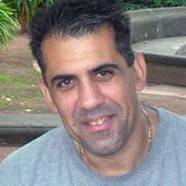Foundation of Electric Motor Technology
Where does one start when discussing this “Giant”? With little formal education, Faraday discovered the underlying principles of electromagnetic induction and electrolysis. His inventions of electromagnetic rotary devices formed the foundation of electrical motor technology, and it was largely due to his efforts that electricity became practical for use in technology. It is well known that Faraday’s Mathematical abilities were no match for those of James Clerk Maxwell (1831-79), who took Faraday’s discoveries and expressed them in what we refer to today as Maxwell’s equations (there are four equations, but Maxwell originally stated twenty however it was Oliver Heaviside (1850-25) that reduced them to the four that we have today).
Legacy of Micheal Faraday
Faraday was the idol of many “Giants” who followed him, including A. Einstein (1879-55), who was said to have kept a photograph of him, and Maxwell, who himself praised Faraday’s latent Mathematical skills after the idea of field lines were introduced by him. One of Faraday’s laws relates to the rate at which these lines are “cut”. Furthermore, “Papa” Ernest Rutherford (1871-37), who likewise was a great experimentalist, paid homage to Faraday, stating:
“When we consider the magnitude and extent of his discoveries and their influence on the progress of science and industry, there is no honour too great to pay to the memory of Faraday, one of the greatest scientific discoverers of all time.” E. Rutherford.
Personal Beliefs and Principles
Faraday, a pioneer in the field of electrical science later turned down a knighthood based on his strict Biblical beliefs (he was a devout Christian). He was not the first “Giant” to refuse such an accolade; one who comes immediately to mind is Stephen Hawking (1942-18), who refused the honour due to being an opposer of the monarchy. I recall that R. Feynman (1918-88), during his interview on Horizon, demonstrated a similar disdain for receiving awards for his work.
In my opinion, the most famous occasion of a “Giant” refusing an award on account of his work was when Grigori Perelman (1966-) turned down the Fields Medal for his work that led to the solution to the Poincaré (1854-12) conjecture using Ricci flow, he turned down the prize after falling out of love with academia, in fact he presented his solution to the problem by posting it on arXiv and not in a reputable journal.
Conclusion
Returning to Faraday, he also made great contributions to Chemistry. His earliest chemical work was to assist Humphry Davy (1778-29), who, as is no doubt well known, was a pioneer of electrolysis and who was able to split many ionic compounds and thus separate several elements. Faraday was involved in the study of chlorine; he discovered two new compounds of it and carbon. He also conducted the first rough experiments on the diffusion of gases, a phenomenon that was further elucidated by Graham (1805-69).
Alas, once again, I have run out of space, sorry “Old friend”.


